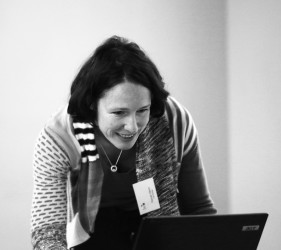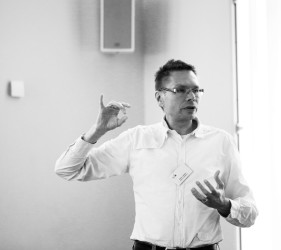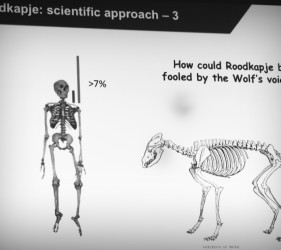
Introducing… the Research School of Behavioural and Cognitive Neurosciences
What BCN is
The Research School of Behavioural and Cognitive Neurosciences (BCN) is an interdisciplinary research school within the University of Groningen. All in all, six faculties participate in the BCN, five from the RUG and one from the University of Twente. Specifically, the Faculty of Medical Science / University Medical Center Groningen participates with the Research Institute BCN-BRAIN, the Faculty of Mathematics and Natural Science participates with its Centre for Behaviour and Neurosciences (CBN) and its Johann Bernoulli Institute for Mathematics and Computer Science (JBI), the Faculty of Behavioural and Social Sciences takes part with the Heymans Institute (HI), the Faculty of Philosophy with its Groningen Research Institute of Philosophy (GRIPh), the Faculty of Arts takes part with the Center for Language and Cognition Groningen (CLCG), and the University of Twente participates with the Institute for Biomedical Technology and Technical Medicine (MIRA).
BCN’s mission is to bring together research at different levels: specifications of brain activity at the molecular or cellular level, analyses of physical and mental operations, up to the complex level of information processing.
BCN Education
Besides stimulating interdisciplinary research amongst faculty members, BCN offers excellent Master and PhD students a stimulating environment and an integrated program of education, research training, and research projects.
The BCN Research Master program offers a unique chance of a truly multidisciplinary education, while becoming an expert in one specialistic track. The program concentrates on three focal and closely related areas of particular strength within BCN. The program is taught in English by an international consortium of teachers, many of them being internationally acknowledged. BCN graduates will be internationally competitive, and well equipped to obtain PhD, postdoctoral and societal positions. The BCN Research Master was recently voted the best Neuroscience program in the Netherlands!
The BCN PhD Training and Education program educates PhD students to become independent highly qualified researchers in the field of behavioural and cognitive neurosciences. After obtaining their PhD graduates should be able to communicate and cooperate with neuroscience researchers with different backgrounds. The program provides PhD students with the tools to do this while providing specialisation in one specific field chosen by the PhD student him-/herself.
The Newsletter and a link to Mindwise
BCN publishes a quarterly newsletter, whose content is created and edited by BCN students and faculty members. It showcases research activities within BCN, interviews with current and alumni members, as well as news and relevant events. Have a look at the latest newsletter here. The similarities with Mindwise were not lost on Sander Martens (the editor-in-chief of the newsletter) and me when we were recently having lunch at the Prinsenhof and I am very excited to announce a collaboration between the two platforms! Once per quarter, there will be cross-posting between Mindwise and the newsletter; they will feature one of our articles and we will reciprocate. Additionally, you can now expect to see BCN events and news in the relevant tabs on Mindwise. With many research seminars and colloquia within BCN, we are happy to be adding this new information for Mindwise readers.
The BCN Investigators Meeting
On Thursday March 27th 2014, the third annual BCN investigators meeting was held with diverse but accessible presentations on topics ranging from speech perception (and the Big Bad Wolf) to the neuroimmune system in fruit flies. Interested staff from all faculties are welcome to attend. Speakers this year were Nathasha Maurits, Mark Nieuwenstein, Etienne Gaudrain, Niels Taatgen, Gregory Mills, Steven Bergink, Ruud Kortekaas, and Pascale Dijkers. The day organizers and chairs were Jacob Jolij and Martine Maan. Check out the photos from the event below. Maybe you will even recognise a couple of faces!













